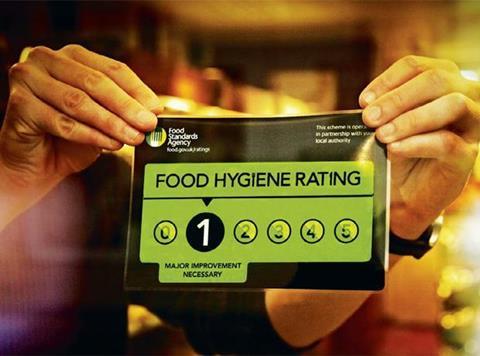
Food safety and hygiene laws are at risk of becoming “undeliverable” because of the continuing lack of enforcement resources, the FSA has warned.
New figures released by the body reveal “dangerously low” levels of manpower for food hygiene and safety inspections.
The report, ahead of next week’s FSA board meeting, reveals around 39,000 businesses had not been inspected by under-pressure local authority regimes.
Whilst this was down on the peak of 77,000 during the pandemic, the report by the FSA said the volume “represents a significant level of unknown public health risk”.
The latest figures show of those businesses that have been rated for food hygiene under the Scores on the Doors system, the level of establishments achieving a rating of ‘3 – generally satisfactory’ or better – has remained at 97% for the past four years.
However, last month an investigation by The Grocer revealed some 85 supermarkets had failed their most recent food hygiene safety inspections, casting further questions over FSA plans to reduce the frequency of inspections for large companies to concentrate resources on smaller companies.
The FSA report said that while resources dedicated to food hygiene had improved since the pandemic, most notably in England, the overall number of Environmental Health and Trading Standards officers remained “substantially below levels seen more than a decade ago”.
“LAs continue to report ongoing resourcing challenges, which limit their ability to respond effectively to increasing demand,” it said.
“We need to understand whether there is a tipping point at which a lack of capacity and capability in the system will make the current system undeliverable, and if so, what additional interventions might be required to manage the associated risks.”
Consumer body Which? said the figures were a “stark insight” into the state of the UK’s food law enforcement system.
“This year’s report stresses once again how food standards and hygiene teams have become dangerously under-resourced as the number of food businesses increases – leaving vital protections for food safety and standards at risk,” said Sue Davies, Which? head of consumer rights and food policy.
“This reflects Which?’s own research, which has shown that Trading Standards services around the country are struggling to enforce a broad range of crucial consumer protections. The government needs to urgently reform the system so that there are effective safeguards in place to uphold food safety and food standards, as well as other vital consumer protections.”



















No comments yet